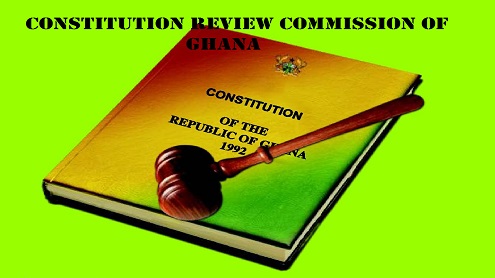The Coalition of Civil Society Organisations, has called on government to open up the constitutional review process for relevant stakeholders to make inputs.
The coalition, comprising more than 20 professional bodies, at a news conference on Wednesday, accused government for failing to make the review process transparent and allow sufficient inputs from citizens.
Mr. Seth Abloso said “The Constitutional Review Commission has not sufficiently involved the people and Parliament for alternative ideas.
He said: “Constitutional amendment is an opportunity that comes once in a life time and the quality of the decisions that are made must stand the test of time.
“Therefore, opening up the process to inclusive or broad-based participation will strengthen popular commitment to the amended constitution.”
“But they have not shared the proposal with anybody, this affect all of us and they have not opened up the process for us to know what is happening, either to add or subtract,” said, Major General Nii Carl Coleman, chairman of Civic Forum Initiative.
He said: “We want to know about the election of the district chief executives, they must be accountable, and just short listing five to be vetted by the local government services commission means making them political stooges to the executive.”
The coalition has called on government to allow Members of Parliament to have reasonable time to consider the Bill, and also extend the period for referendum to allow for effective public education on 34 old entrenched provisions and seven new ones added.
Members of the coalition say Parliament, the Electoral Commission, political parties and stakeholders have to strive for consensus on the amendment of the constitution.
For any meaningful referendum, Political scientist, Dr Kwesi Jonah said concerns raised about the 41 entrenched provisions ought to be addressed quickly to forestall any confusion.
He said: “in all, we have 41 entrenched provisions but you are not going to vote on each of them, what it means is that if you disagree with one provision your ‘no vote’ rejects the entire provisions.”
Former Boss of the Commission on Human Rights and Administrative Justice, Justice Emile Short questioned the rationale for voting ‘yes or no’ to cover entire provisions, raising fear the whole exercise could be doomed.
“ The document and the entire process should be made public as soon as possible, it should be transparent and allow citizens inputs,” he added.
The Constitutional Review Commission was inaugurated on October 11, 2010, to solicit views from the public on the review of the 1992 Constitution. After the commission submitted its final report on December 20, 2011, a Constitutional Review Implementation Committee was formed on October 2, 2012 to assist the government in the implementation of recommendations made.
The government issued a White Paper on the Constitution Review Commission’s report, accepting many of the recommendations and rejecting a few of them.
Source: GNA


